Her apartment decor immediately dispels any notion that this will be the interview I was expecting. A porcelain mint green tea set sits on a shelf alongside a copy of Severance by Ling Ma and Flights by Olga Tokarczuk. For a moment, the Murder Hornet seems unaware I have joined the Zoom call. She fiddles with her antennae, a conceit to keeping up appearances, yet another surprise in an interview in which we’ve yet to exchange a word.

“Hello!” I greet her over the faulty internet connection. Her eyes, not too unlike Spiderman’s mask with their teardrop shape and inscrutable motives, meet mine. “Hi there!” she says cheerfully.
I haven’t prepared any questions. I suppose I expected the Murder Hornet to live up to her name and lead our conversation with some degree of homicidal bravado. What I have instead is just a bug, a pair of wings, an immigrant, an entity. Where to start?
“You’ve caused quite a stir,” I jump in, still unwilling to part with the tantalizing caricature of the beast in the headlines, still wondering, even hoping, shameful as it might be to admit, that she might surface at the slightest provocation. “You nabbed the infamous Maggie Haberman tweet today. Not everyone can say that.”
“Yes, I’m certainly buzzzzzzing at the moment.” We laugh. “No, but in all seriousness, it’s been a wild ride. I think it’s just a matter of, you know, ‘Oh shit, the last thing we needed was a murder hornet on top of everything else, twenty-fucking-twenty,’ and I get the sentiment. I do. Everyone is on edge.”
It’s clear in that moment there will be no beast.
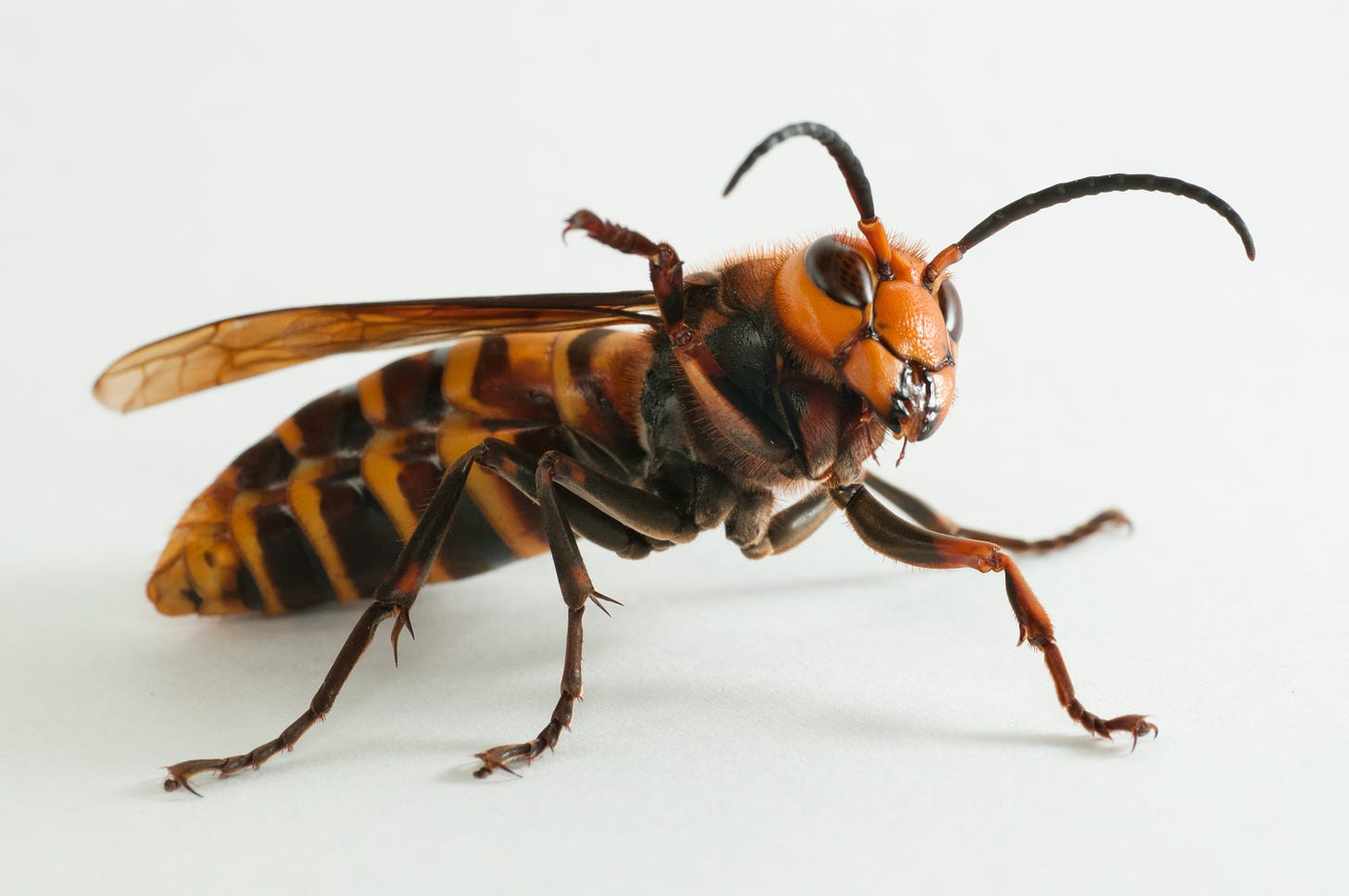
Murder Hornet
“Right,” I say. “Part of it is certainly the name. You hear ‘murder hornet’ and your mind paints a salacious picture. But I think another part of it, and you sort of touched on this, is this idea of apocalypse, of pestilence. Insects have always served as iconography to that end in human culture. What do you think?”
“Entrenched in the American psyche, and indeed in western thought in general, is the paradoxical fear and yearning for rapture,” Murder Hornet says, click-clacking her mandibles. “Ultra-capitalistic societies that worship the individual at the expense of the collective understand, even if only on a subconscious level, the inherent wickedness of their idolatry, and so crave the cleansing fire of a righteous God even as their animal brain vehemently rejects it.”

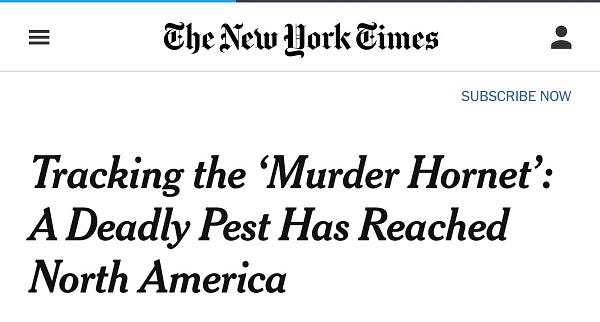
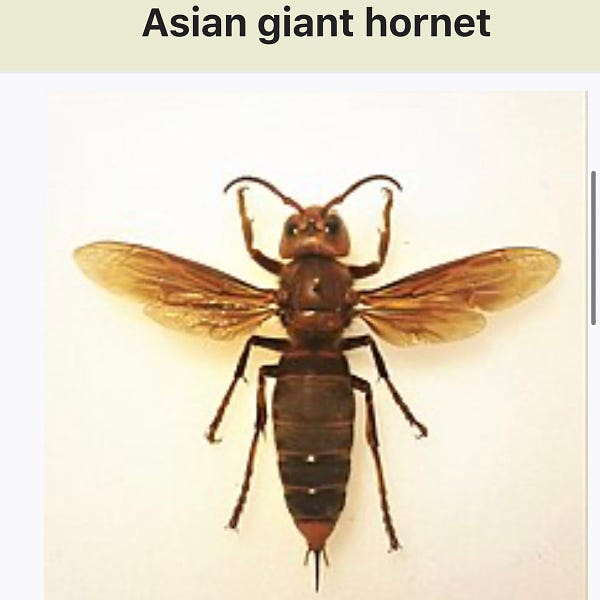
“And what’s the role of the insect in that?” I press.
“Well, we quite easily represent the collective, the hive mind, the will of nature itself,” she says. “The thinking goes that we have no concept of sympathy or forgiveness. When we kill, it’s not murder. Murder connotes passions of some kind. But we are governed entirely by rational appetites. When we lay waste to your works, it’s easy to call it the will of God.”
I shift the conversation to a more personal subject, eager to suss out the dimensions of an insect that’s not short on surprises. “Are you gay?”
She fiddles with her antennae again, as if rifling through the offices of her mind, or the nest, or whatever it is murder hornets live and work in.
“I would say I exist outside the human constructs of gender and sexuality, and so in that regard I am queer,” Murder Hornet at last replies. “But this term too falls well short of adequately addressing the nuances of my being, which lie beyond the sovereign of human comprehension.”
“So you are gay.”
“Yeah.”
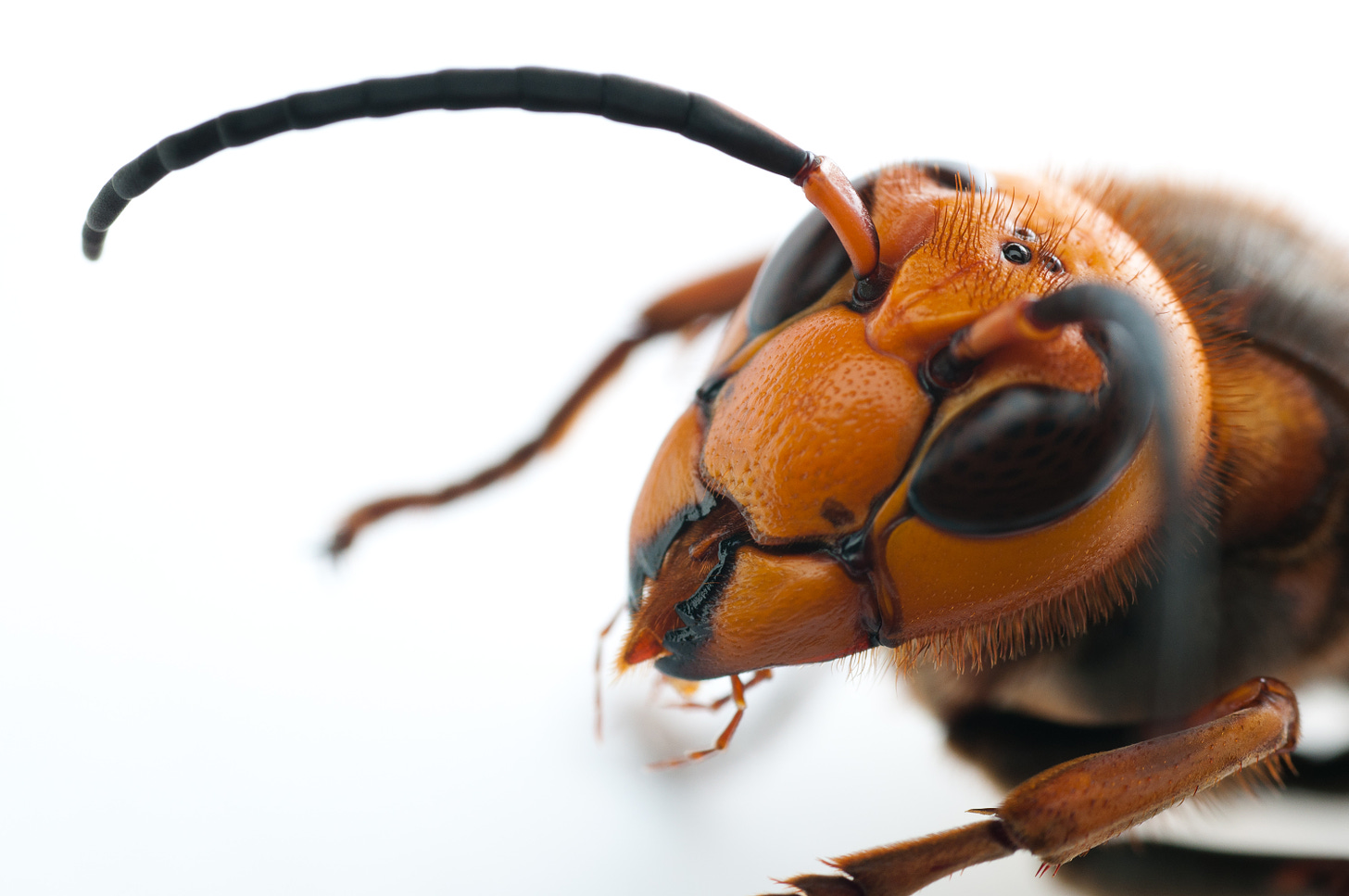
Gay Murder Hornet
“Last question,” I say, fidgeting for the first time, which allows me to appreciate how at peace I’ve felt with my subject until now. “Have you, indeed, murdered anyone?”
“Well, yes,” Murder Hornet replies plainly. “I am a murder hornet.”

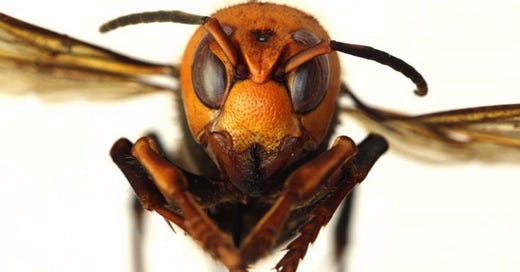



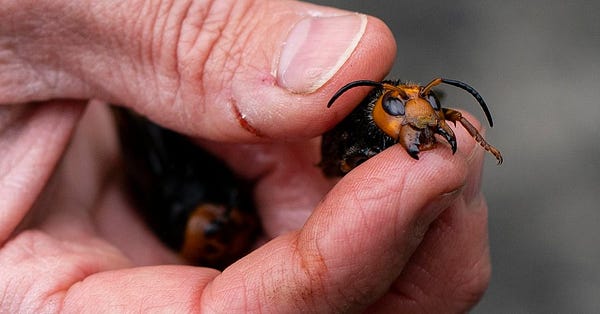
Still coming back to this years later
Still howling